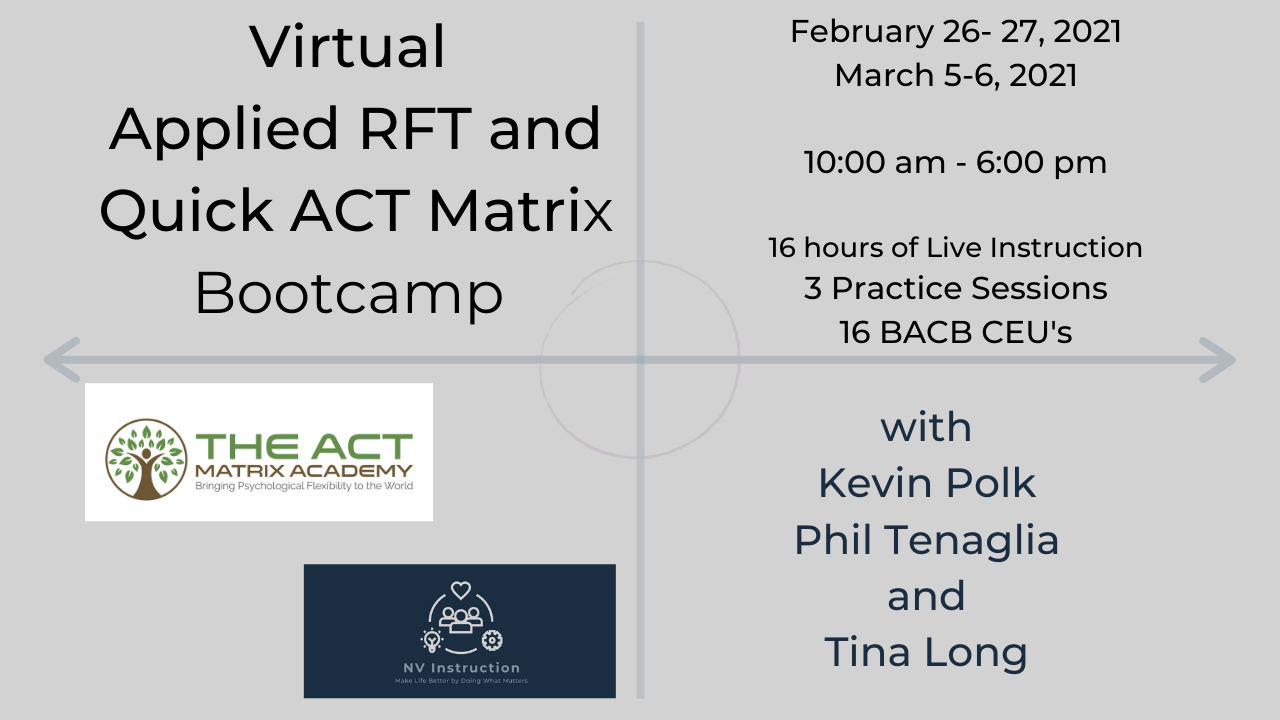How would you like to learn a process that would help you get collaboration going quickly, overcome resistance, and help those you serve move forward? Well, we are offering the first-ever Virtual ACT (Acceptance and Commitment Therapy and Training) Matrix Bootcamp that will give you an intensive, online opportunity to learn and practice the Basic Form of the Matrix, apply RFT, receive personalized assistance from Dr. Kevin Polk, the creator of the Matrix, Tina Long, BCBA, and myself.
We will meet over two separate sessions and as a bonus, you will have the opportunity to become certified as an ACT Matrix Trainer. All training will be held on our Crowdcast platform and recorded so you can review them at any time.
The Matrix is based on a theory of language and cognition, Relational Frame Theory (RFT). ACT and RFT are evidence-based, cutting-edge approaches to reduce the struggle with yucky stuff and increase valued living. You will leave with a powerful tool to apply RFT and ACT in whatever setting you choose.
BCBAs will receive CEUs. Pennsylvania educators can also earn ACT 48 hours. The Bootcamp is appropriate for all levels of professional development self-study. You can sign up below!
Virtual Quick ACT Matrix / RFT Bootcamp


